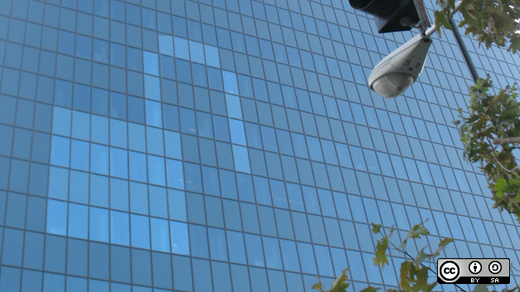
photo credit: opensourceway via photopin cc
Being a student, the #1 assignment we have is to do research. This is needed to have a deeper understanding of what the topic is about. Moreover, there’s so much in the Internet, our lecturers and learning materials can never cover as much. Just look at how much data is generated in ONE minute! 
However, from my experience, it seems like e-books, research journals and papers are often behind paywalls. Based on a survey done by a global pricing consultancy, Simon-Kucher & Partners, 90% of online content will be held behind the paywalls in the upcoming 3 years. (Lepitak, S., 2013)
From a student’s point-of-view, this isn’t good news! Why do we need to pay for online materials?
Educational perspective:
With open access, more information can be gathered and allow students to learn more at anytime with no extra cost. I can’t imagine if every site I go for information started charging us! If I have to do pay, I’d rather go to the library to obtain information. I’m sure some of you have experienced the pain of only being able to read abstracts, with the key points all being paid content. What if you paid for it and realized it isn’t something you are looking for?
As for the authors of these materials, information would be readily available and they would be able to exchange ideas and improve on their work, bringing more and better materials to the everyone! It could also increase the awareness and profile of the author, providing them with greater credibility in their work.
It can also help provide researches and authors in developing countries with the opportunity to participate in establishing journals, reports, etc.!
However, this could negatively impact the quality and accuracy of materials. If materials become open content, it means that they will not go through reviews and it therefore means that there is no quality control.
Media perspective:
Open content could help to better spread the artistes’ capabilities internationally and also gain revenue through other sources such as advertisements.
However, when Apple and U2 partnered to give out their free album, it turned into an unexpected disaster. Many were unhappy with this as they took it as an insult to the industry.
Critics also asked whether this was the same U2 whose long-term manager Paul McGuinness opined five years ago: “We are living in an era when ‘free’ is decimating the music industry and is starting to do the same to film, TV and books. What has gone so wrong?”
(408 words)
References:
Lepitak, S. (2013), 90% of online content to be held behind paywalls in three years media company survey suggests | The Drum. Available at: http://www.thedrum.com/news/2013/04/12/90-online-content-be-held-behind-paywalls-three-years-media-company-survey-suggests [Accessed December 9, 2014].
Advantages and Disadvantages of Open Access | edanz editing global. Available at: http://www.edanzediting.com/blog/advantages_and_disadvantages_open_access#.VIcCZFOUf1t [Accessed December 9, 2014].
Sherwin, A. (2014), Free U2 album: How the most generous giveaway in music history turned PR disaster – Features – Music – The Independent. Available at: http://www.independent.co.uk/arts-entertainment/music/features/free-u2-album-how-the-most-generous-giveaway-in-music-history-turned-into-a-pr-disaster-9745028.html [Accessed December 9, 2014].
Tepper, A. (2012), How Much Data Is Created Every Minute? [INFOGRAPHIC]. Available at: http://mashable.com/2012/06/22/data-created-every-minute/ [Accessed December 9, 2014].
Open Access: Not just a matter for scientists | Open Access Working Group. Available at: http://access.okfn.org/2012/05/17/open-access-not-just-a-matter-for-scientists/ [Accessed December 9, 2014].
Hello Jeanne! I like the image that you have posted on the generation of data. It’s pretty amazing how much the fast-paced technology can produce such output within a minute, isn’t it? Won’t you agree with me that Google will be one of the biggest millionaires if every website we visits require us for payment? I’m not sure about how you source out your information but Google has always been my best friend for online research. I can identify with you the frustration behind paying for something only to end up knowing that it’s irrelevant to your needs.
I wasn’t aware of the Apple and U2’s disaster until I came across your post. What is your view on this disaster in regards to open content? Will you support them in their action of giving out free album? Do you think sustainability is a disadvantage to open content assuming that you are not getting paid for producing your work?
LikeLike
Hi Jeanne!
We share the exact sentiments on the same issue about making materials freely available online. Not everyone would want to pay for a research paper having to find out that it isn’t want they are looking for. For the media perspective, if you haven’t check it out, Anna of UOSM2033 brought in Spotify as an example for a discussion about Open Access: https://annakentmuller.wordpress.com/2014/12/07/spotify-decreasing-piracy-of-diminishing-the-music-industry/
Open access on Spotify like what Anna has mentioned is free and immediate, it also allowed artist to connect with their fans. However, do you think there are piracy issues in streaming free online music? What are your views on open access music service like Spotify?
Let me know your thoughts!
Sara
LikeLike